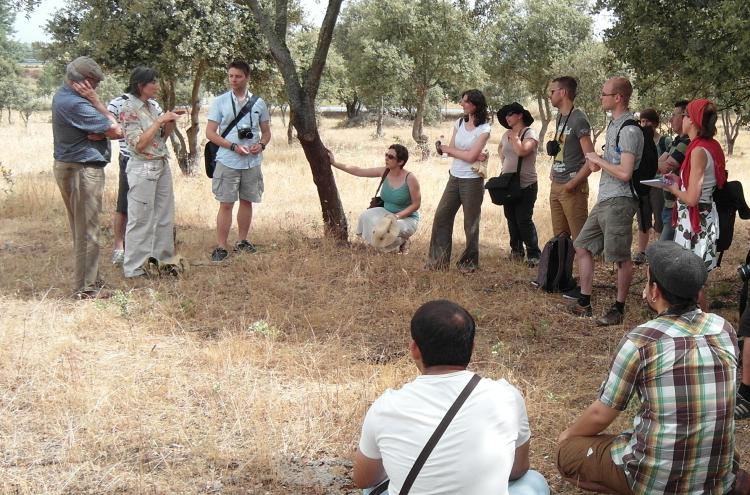
The course is organized as a full one-week course (October 4-9, 2015). The format of the course is a combination of lectures and group discussion on an interactive way. The pedagogic approach is to stimulate independent, creative and critical thinking. To create an open atmosphere to increase the interaction, the course is limited to a maximum of 25 students.
Lectures, seminars, excursion and paper presentations/discussions/feedbacks constitute the various forms of learning processes applied throughout the course. Students are required to present their own work at the course and engage in debates and discussions. These discussions will contribute to critical reflection and attitude as a landscape researcher and are aiming at an improvement of the student’s reflection about their PhD research work in general, as well as an improvement of their paper.
The students are expected to deliver the following to the course:
- a poster presenting the overview of their PhD research
- a paper, focussing on a part of the PhD. In case the student is still in the starting phase of the PhD, this can also be the research proposal. The aim is to discuss and improve the paper during and after the course for future submission for publication.
Pre- and post-course reading and writing is expected. Before the PhD course, the students are expected to hand-in an extended abstract summarizing the research they want to present and discuss at the PhD course (thus in the paper). One month after finalizing of the course, the students have to hand-in an assignment. This assignment may be carried out as an integrated part of writing a text (paper or chapter) for the PhD dissertation. Students who pass will earn 5 ECTS. Students who do not want to hand-in the final assignment will earn 3 ECTS.
Tentative lectures titles
- Sustainability science and landscape approaches
- Governance and self-governance – what is it about? Reflections on governance and self-governance in the context of meso level theories
- Self-governance initiatives and institutional drivers and barriers – examples from Dutch Environmental Cooperatives
- Collaborative landscape planning in rural areas: concepts and approaches
- Co-adaptive management and resilience: concepts and applications – examples from Sweden

